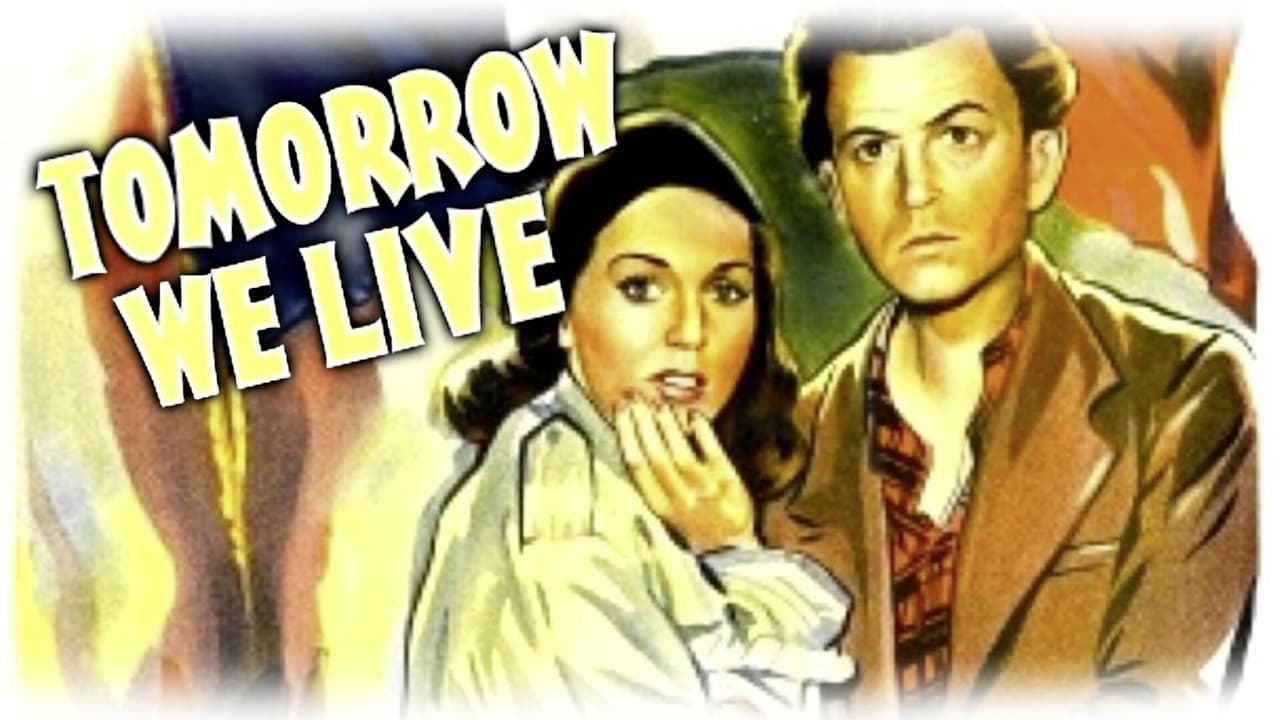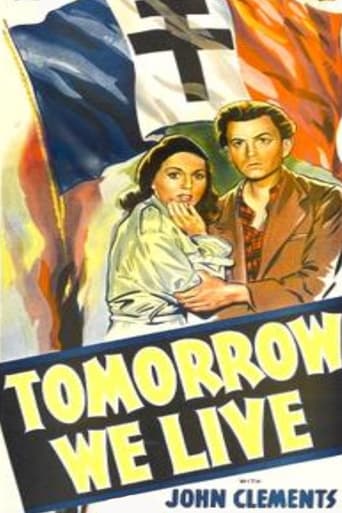PlatinumRead
Just so...so bad
WillSushyMedia
This movie was so-so. It had it's moments, but wasn't the greatest.
Joanna Mccarty
Amazing worth wacthing. So good. Biased but well made with many good points.
Kirandeep Yoder
The joyful confection is coated in a sparkly gloss, bright enough to gleam from the darkest, most cynical corners.
boblipton
One of the titles this movie played under is AT DAWN WE DIE; confusingly, another is TOMORROW WE LIVE. It's directed by George King, who made his mark with cheap quota quickies in the 1930s, most notably the Tod Slaughter melodramas; it stars John Clements, the distinguished stage actor-manager, whose best-known movie role was as Harry Faversham in the great 1939 THE FOUR FEATHERS. That was British film making in the War, when the cinematic world turned upside down, and this story of how Clements wandered into town and found himself in the middle of underground operations and sabotage that was invariably forewarned with the Cross of Lorraine (the symbol of the Free French), drives everyone crazy.It's certainly not a subtle movie on any terms; the mystery, of who was actually in charge of the Resistance in town and who were the collaborators were easy to figure out, simply by assuming this would hit every stereotype of the genre. Yet I found it carried out with such easy confidence in its competent cast, that it rolled right along, as easily as any American movie of the period. If you're in the mood for one of those movies with evil Nazis, freedom-loving Frenchmen who face a firing squad singing "Le Marseillaise" and the inevitable triumph of good over evil, this should fit the bill.
Richard Chatten
Director George King, who regularly delivered the goods in his rousing Victorian Tod Slaughter vehicles of the thirties seriously comes a cropper attempting here to address grim contemporary events in Occupied Europe on a shoestring. Cardboard characters strike poses and mouth banalities against a backdrop of cardboard studio exteriors, failing utterly to rise to the challenge presented by the enormities depicted abroad, doubtless inspired by the recent destruction by the Germans of the Czech town of Lidice. King did a considerably better job with similar subject matter on his next film 'Candlelight in Algeria' (1944).
coolantic
One's first thoughts are how clichéd this film is. But then you realise, as with Shakespeare, that the characters and situations only became clichés because of the constant copying of the theme in subsequent movies. Whereas things appear to fall into the hero's lap as per usual, the action is, at times, surprisingly realistic. A female collaborator is viciously slapped about by the SS and later gunned down by the Resistance. In turn two German officers are shot in the back without compassion and in retaliation fifty hostages are rounded up and shot. Thankfully off-screen. However in the midst of all of this is a hilarious scene in a cinema when the French clientele,at being subjected to a newsreel of Hitler, begin catcalling and making shadows on the screen. These include a V-sign, a fist punching Hitler in the face, and fingers tugging at the Furher's hair. All in all an enjoyable propaganda film
malcolmgsw
Somewhat out of the blue this wartime resistance drama has recently surfaced on Movies4Men.It is one of numerous similar films made around the same time of the war eg Flemish Farm,Freedom Radio which purported to show to English audiences what it was like to live in Occupied Europe.One wonders at this remove what their purpose was.Were they just rousing adventure stories or were they meant to show to the English audiences just how beastly the Nazis were and how the occupied nations were resisting them.I suppose the one standout of this film is the performance of Yvonne Arnaud.She is truly head and shoulders above the rest of the cast.This film is reasonably entertaining and worth a viewing

